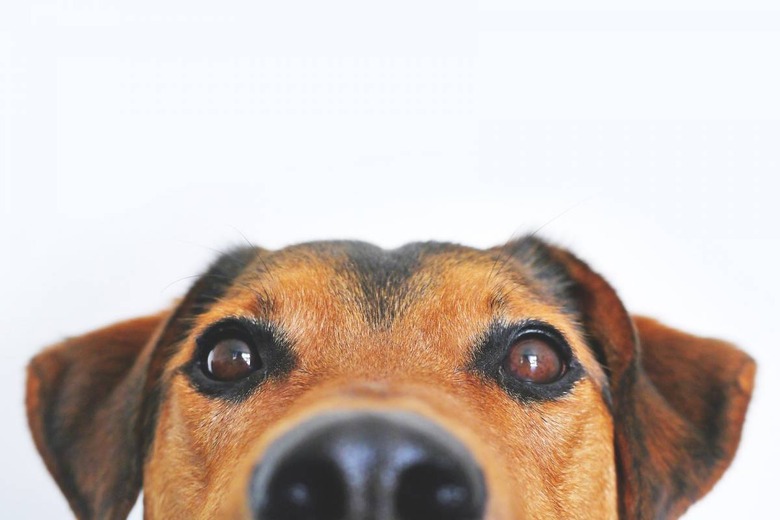FDA Issues Coronavirus Pet Guidelines: What Dog And Cat Owners Should Do
With the debate over "reopening the US" continuing to rage, COVID-19's potential impact on pets and other animals has led to new guidance from the FDA for those worried about possible infection. The number of cases worldwide of animals being infected by COVID-19 is still low – exponentially smaller, in fact, than human coronavirus cases, which now exceed 1 million in the US, and more than 60,000 deaths – though that hasn't prevented concerns that dogs and cats could be a risk vector.
In the US, the first tested animal confirmed to have COVID-19 was a tiger in a New York zoo. That was at the start of April; later in the month, a lion was diagnosed, and then two cats – in separate areas of New York State – were also found to be infected. They're both expected to make a full recovery, and the USDA Animal and Plant Health Inspection Service is keeping a log of confirmed animal SARS-CoV-2 cases.
Compared to the sort of risks you face going to a grocery store or other area while not wearing a mask or some other sort of face covering, pets are clearly only a minor risk. Still, the FDA has some new guidance on what to do as a responsible pet owner. That's both in the interest of you, and your pet.

There are four primary guidelines. First, it's a good idea for pets like dogs and cats to observe the same social isolation protocols as humans do. "Don't let pets interact with people or other animals outside the household," the FDA suggests.
Though cats may protest, it's advised to keep them indoors when possible. That also helps prevent them interacting with other people or animals, who might themselves be infected with COVID-19.
If you're out walking a dog, meanwhile, a leash is essential. The FDA recommends "maintaining at least 6 feet (2 meters) from other people and animals" as you do so. Finally, it's good practice to avoid dog parks and public places, where it might be expected that a large number of dogs and people could be gathering.
COVID-19 and pets: What we know
The exact nature of coronavirus and its impact on animals is unclear at this stage, with research still underway. Right now, the general advice from the Centers for Disease Control (CDC) is that, if you're sick with COVID-19 – or believe you could be – it's best to limit your contact with animals.
"This means you should avoid contact with your pet, including petting, snuggling, being kissed or licked, and sharing food or bedding," the FDA advises. "If possible, have another family member care for your pet while you're sick. If you must care for your pet or be around animals while you are sick, wash your hands before and after you interact with your pets, and wear a cloth covering on your face."
Still, the risk of pets actively spreading the infection is low, the agency cautions, and routine testing for animals isn't currently recommended. There's no evidence that skin, fur, or hair of animals like dogs and cats can carry the coronavirus.

As for species particularly susceptible, laboratory research has demonstrated that cats, ferrets, and golden Syrian hamsters "can be experimentally infected with the virus and can spread the infection to other animals of the same species," the FDA says. Dogs aren't as likely to be infected as cats and ferrets. Pigs, chickens, and ducks didn't become infected or spread the virus, meanwhile – you might be better off worrying about how you're cooking your chicken and whether that will make you sick.
Most importantly, this isn't an excuse to get rid of a pet, or to avoid adopting an animal in need of a good home from a shelter. "There is no reason to think that any animals, including shelter pets, play a significant role in spreading the virus that causes COVID-19," the FDA concludes.
